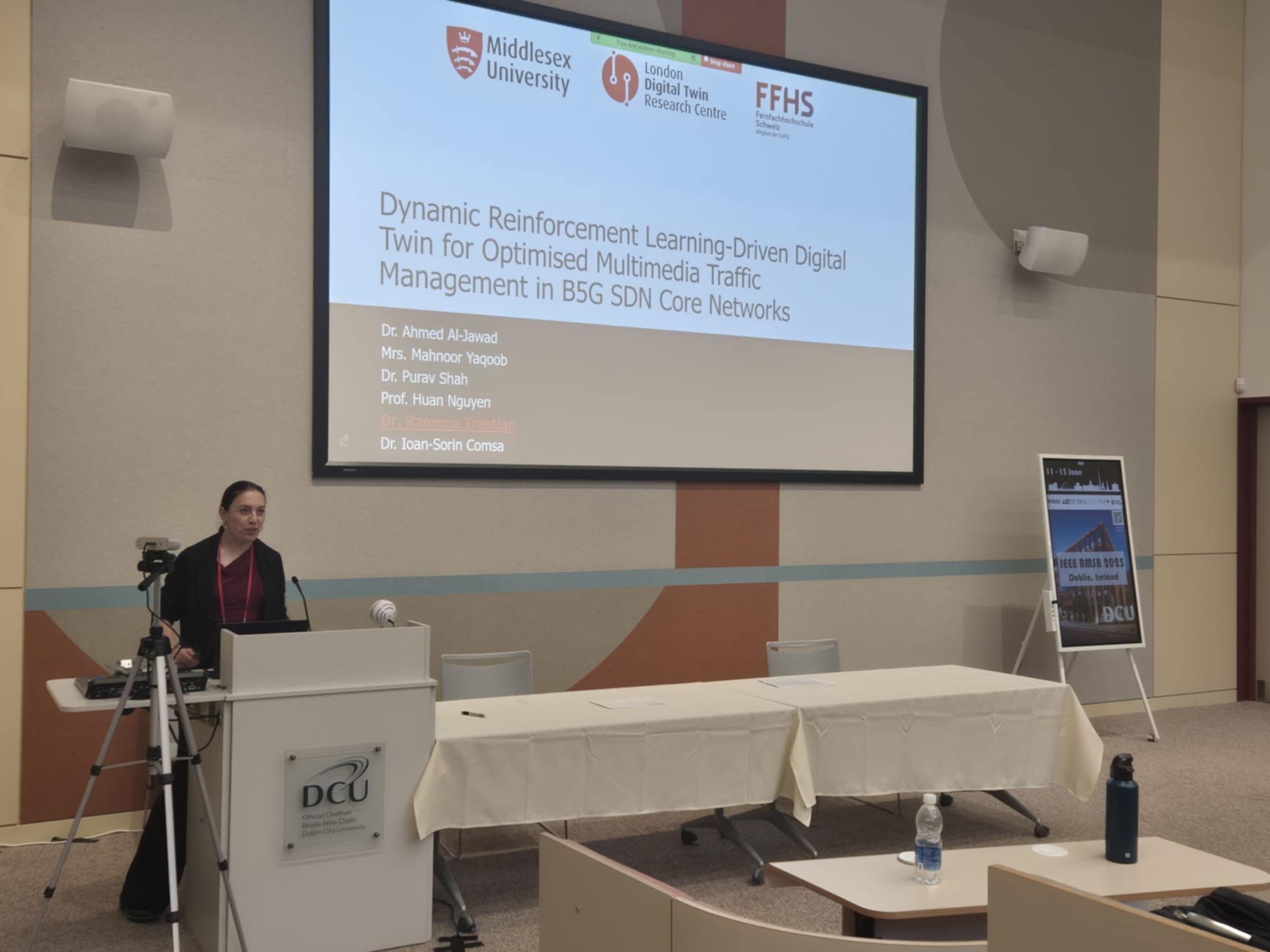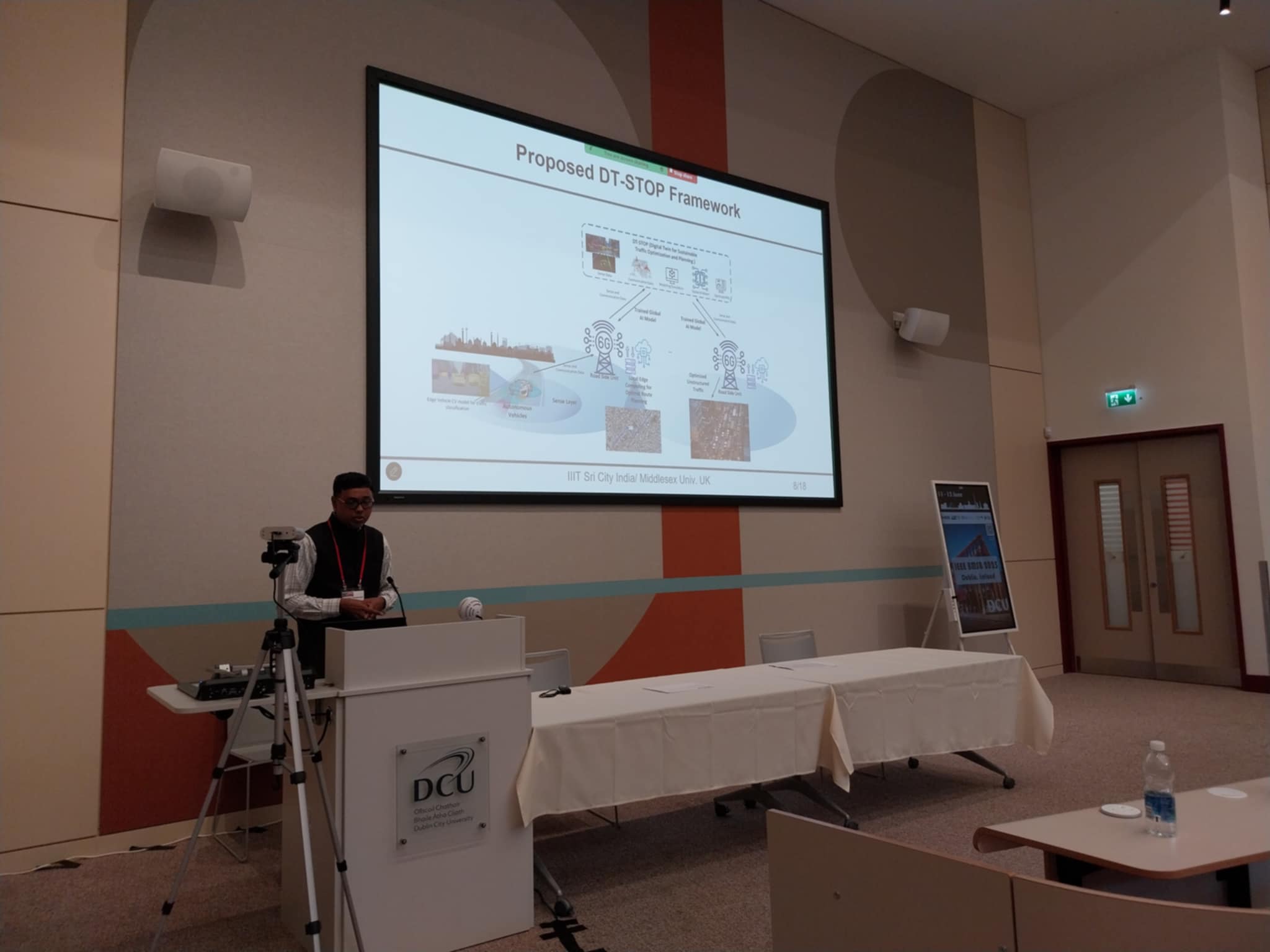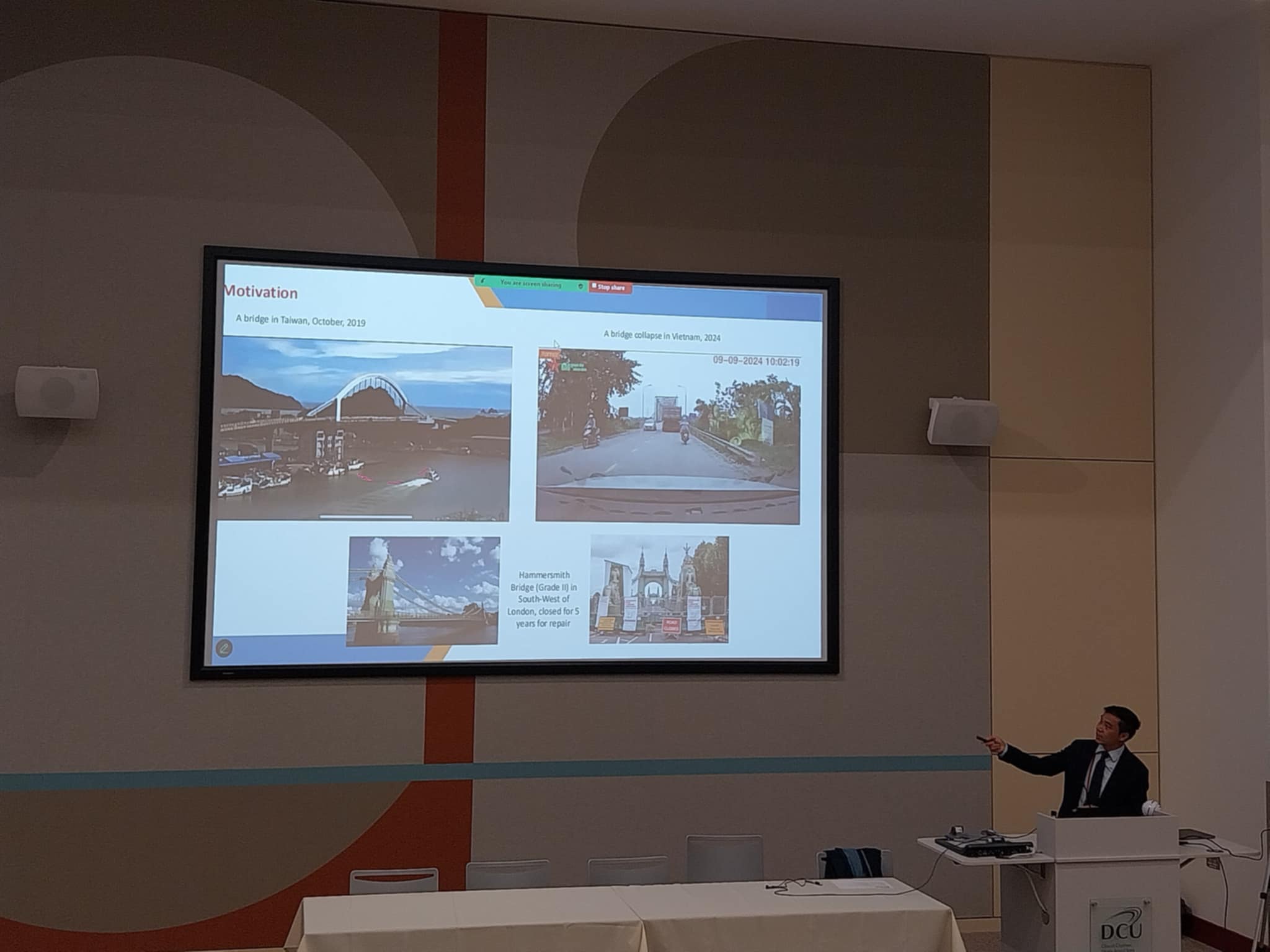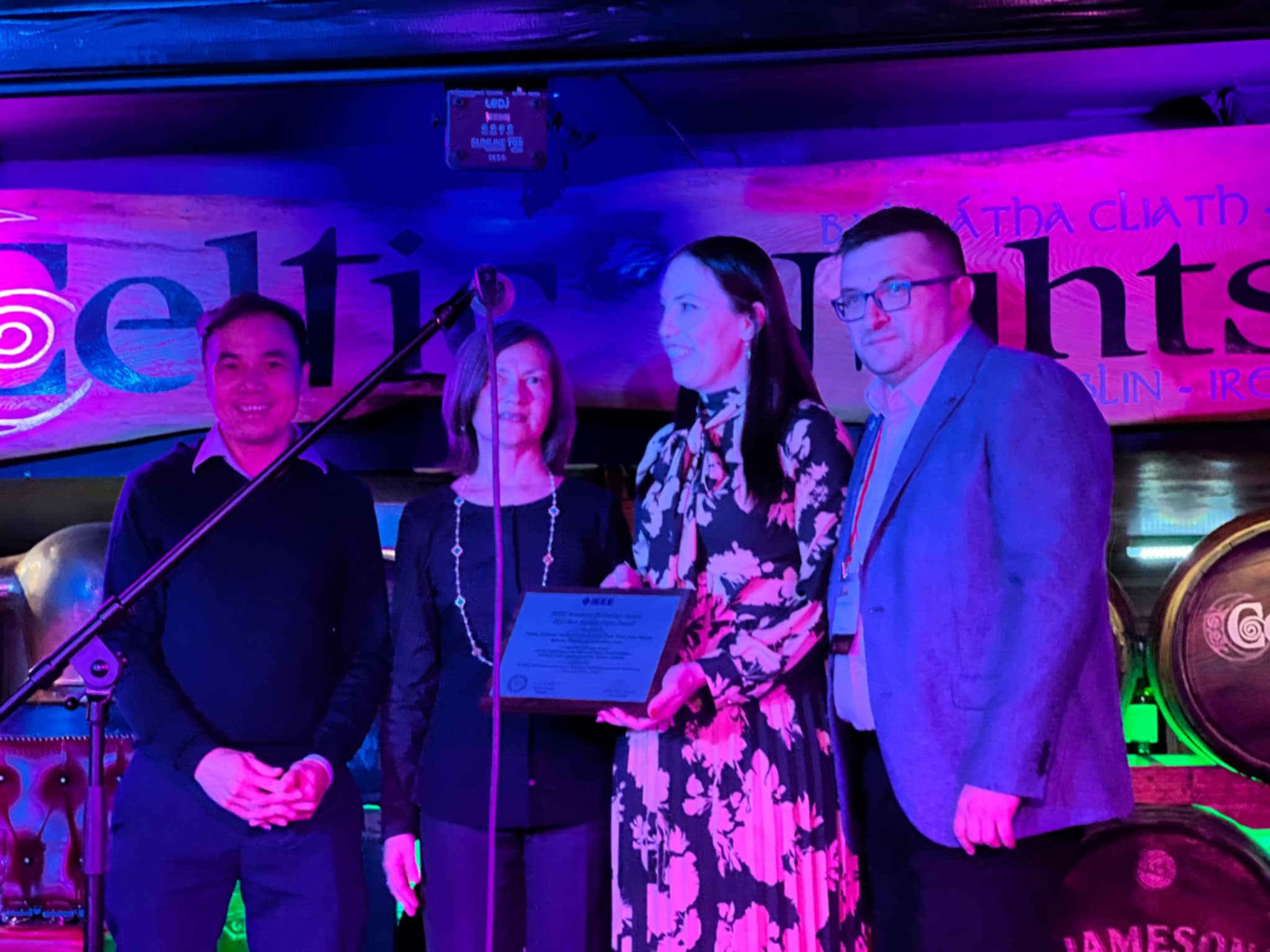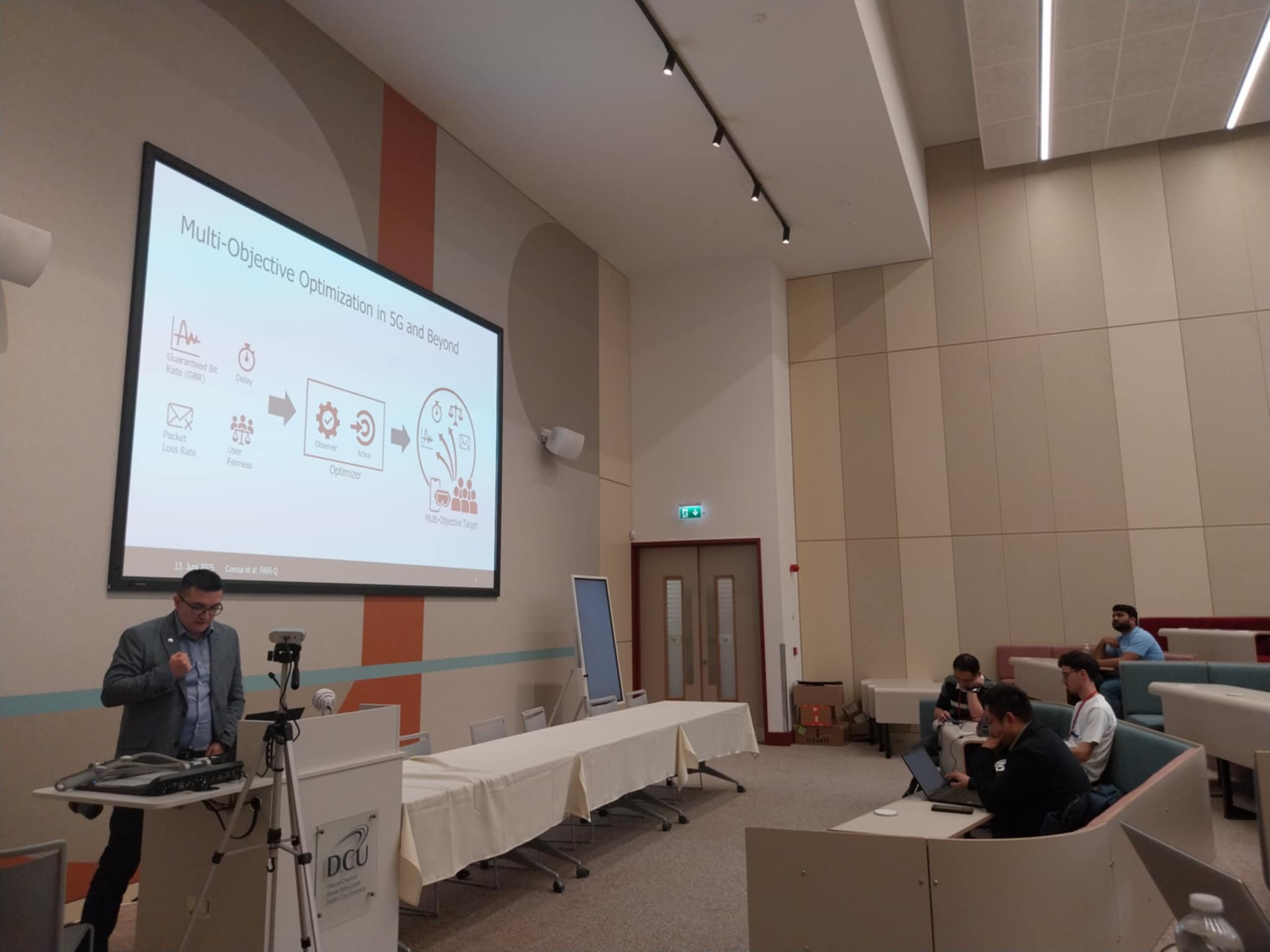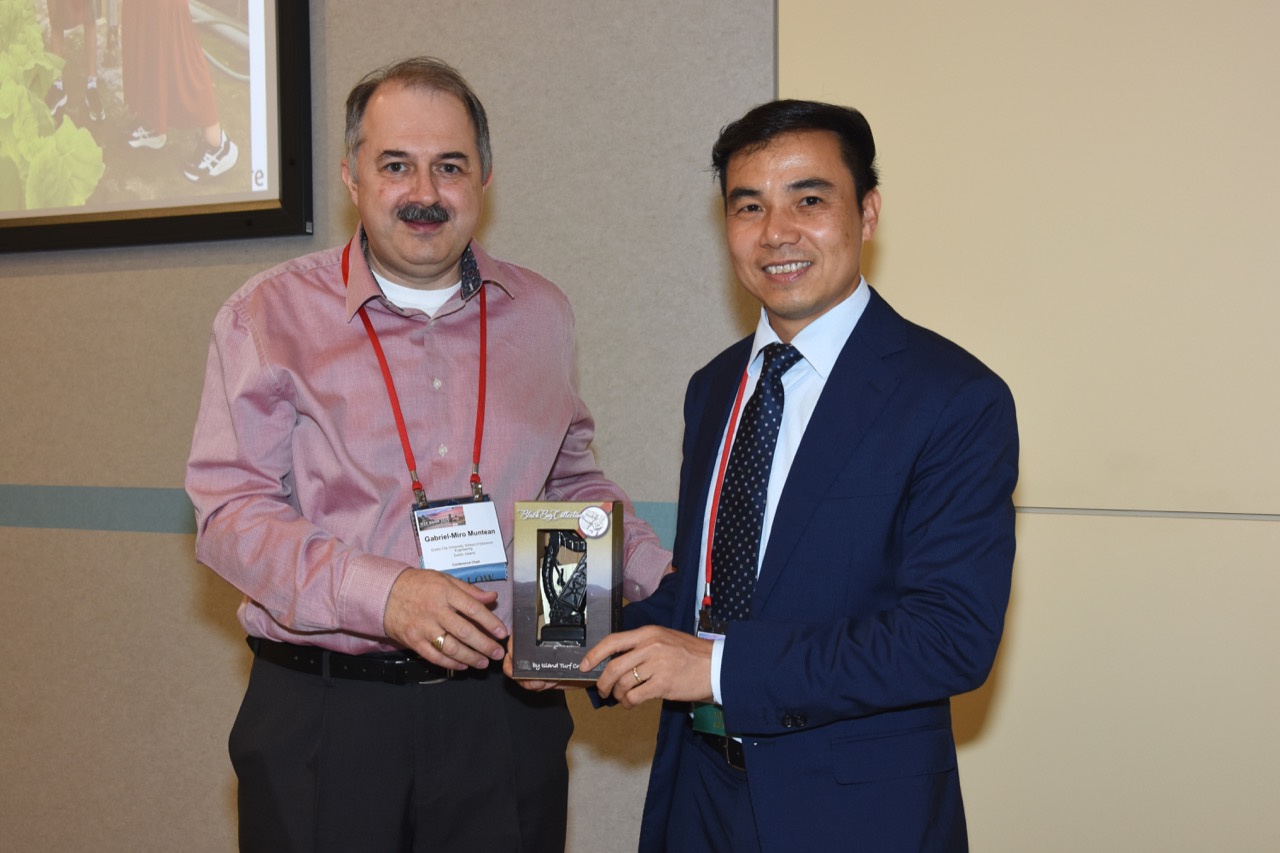The London Digital Twin Research Centre (LDTRC) had a strong presence at the IEEE International Symposium on Broadband Multimedia Systems and Broadcasting (BMSB) 2025, held in Dublin, Ireland. As one of the leading events in the field, BMSB provided a valuable platform for our researchers and collaborators to showcase their latest innovations at the intersection of Digital Twin (DT), AI, and 6G technologies.
LDTRC and its global research partners presented four peer-reviewed papers, highlighting impactful contributions to the fields of intelligent network management and sustainable urban technologies:
-
Dr. Ramona Trestian, Associate Professor at LDTRC, presented:
-
“Dynamic Reinforcement Learning-Driven Digital Twin for Optimised Multimedia Traffic Management in B5G SDN Core Networks”
This work proposes a reinforcement learning-powered DT framework for dynamic multimedia traffic optimisation in B5G software-defined networks.
-
-
Dr. Ioan-Sorin Comsa, research collaborator from the Swiss Distance University of Applied Sciences, presented:
-
“Learning to Mine: Integrating Channel Quality Patterns for Enhanced AI-Assisted Scheduling Decisions in 6G Multimedia Networks”
-
“FAIR-Q: Fairness and Adaptive Intelligent Resource Management with QoS Optimization in Dynamic 6G Radio Access Networks”
These studies explore how AI models can boost fairness and efficiency in 6G multimedia scheduling and resource allocation.
-
-
Prof. Hrishikesh Venkataraman, research collaborator from the Indian Institute of Information Technology, Sri City, presented:
-
“Leveraging Digital Twin Technology for Traffic Optimization: A Pathway to Sustainable Urban Transportation”
This research applies DTs to simulate and optimise urban traffic flows, contributing to smart, sustainable mobility systems.
-
🏆 Best Student Paper Award
We are proud to announce that our PhD students received the Best Student Paper Award for their outstanding work on:
“Dynamic Reinforcement Learning-Driven Digital Twin for Optimised Multimedia Traffic Management in B5G SDN Core Networks”
This recognition celebrates the excellence of our early-career researchers and reinforces LDTRC’s role in nurturing innovative talent.
🎤 Keynote Address by Prof. Huan X. Nguyen
A major highlight was the keynote delivered by Prof. Huan X. Nguyen, Director of LDTRC, titled:
“Digital Twin for 6G Networks: Enabling Open RAN and Smart IIoT Applications”
Prof. Nguyen explored how Digital Twins are poised to transform 6G network design by enabling Open RAN architectures, predictive management, and autonomous optimisation. The talk also addressed use cases such as smart factories, precision agriculture, and infrastructure monitoring, emphasising the role of AI in scaling DT solutions and delivering intelligent connectivity to society.
🤝 Acknowledgment
This research was carried out as part of the UKIERI-SPARC project ‘DigIT’ [Grant ID: UKIERI-SPARC/01/23], was partly supported by the EPSRC UK-India Future Networks Initiative project ‘Q-DTRAN‘ [Grant ID: EP/W016524/1] and partly supported by the British Council’s ISPF Japan project ‘QuanDT‘
IEEE BMSB 2025 marked another milestone for LDTRC in shaping the future of digital infrastructure through research, collaboration, and innovation. We look forward to sharing more progress as we continue advancing Digital Twin technology for intelligent, resilient, and sustainable systems.

